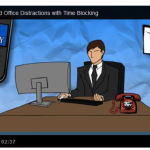New Year’s Reflections

I don’t like New Year’s resolutions, but I do like reflecting at the end of the year. And while I’ve tried some of the standard reflection questions (what worked well? what didn’t work so well?), I get pretty bored with them. So this year I came up with my own list. It’s a bit quirky, but it works for me.
New Year’s Reflection Questions:
- When did I last laugh so hard that I cried, (almost) peed my pants or hurt the muscles in my stomach? What were the circumstances and can I replicate them at least twice as often in the new year?





